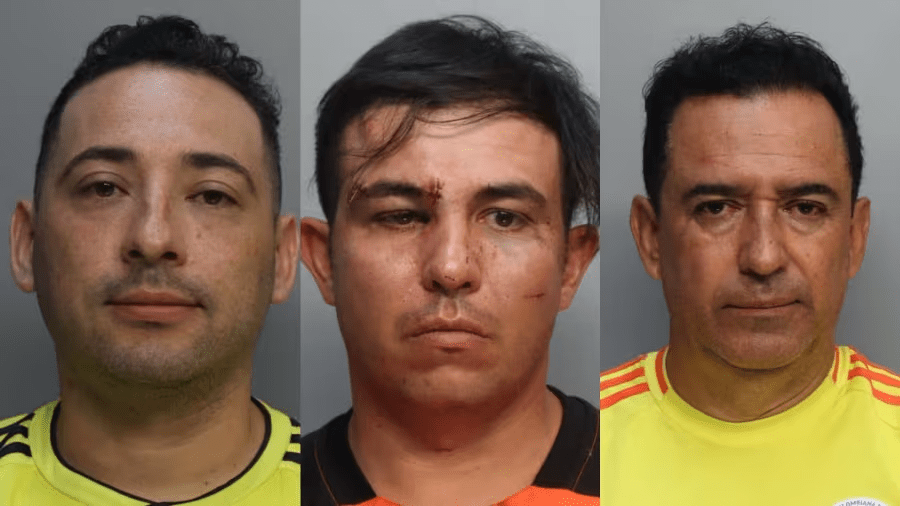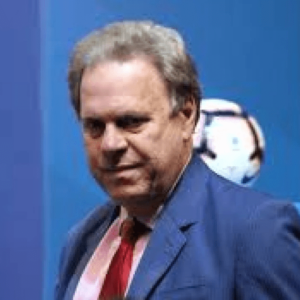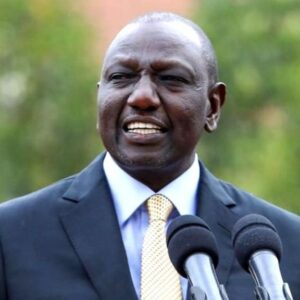Just over three weeks after he was sworn in on Jun. 3, Haiti’s de facto Prime Minister Garry Conille – without even the knowledgemuch less the approval, of the Transitional Presidential Council (CPT) that appointed him – boarded a plane on Jun. 28 to visit Washington, DC, where he reported to his bosses in meetings with U.S. Secretary of State Anthony Blinken, Assistant Secretary of State for Western Hemisphere Affairs Brian Nichols, Deputy National Security Adviser Jonathan Finer, and paymasters from the World Bank and Interamerican Development Bank (IDB), among others.
He then traveled to New York, where he addressed the UN Security Council on Jul. 3. “The arrival of the Multinational Security Support [MSS] mission’s first contingent is the dawn of a new era in Haiti,” Conille said in his address in French to the body. “Haiti is currently at a critical point with 12,000 armed individuals holding a population of 12 million hostage.”
“We will restore our territory house by house, neighborhood by neighborhood,” he continued. “This isn’t just a security operation; it is a renaissance of the national spirit.”
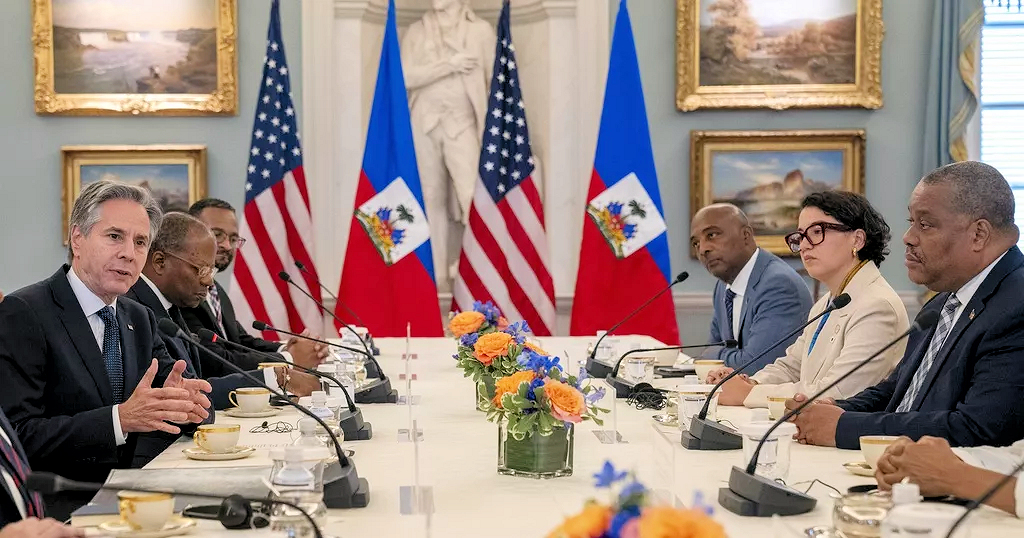
Such hyperbole aside, with the honeymoon hardly begun, it already looks like the MSS may “climb a reef,” as the Kreyòl proverb says: hit a reef.
First, all hell continues to break loose in Kenya itself, where massive demonstrations occupied and partially burned the Parliament in Nairobi on Jun. 25 in response to massive tax hikes and austerity cuts which the government proposed so it can try to pay off its crushing $46 billion external debt, owed largely to the International Monetary Fund (IMF).
At first defiant, President William Ruto, whose resignation many are demanding, has bowed to popular ire, rescinded the tax hikes for now, and promised to overhaul his cabinet, although impatience grows with his sluggishness in doing so.
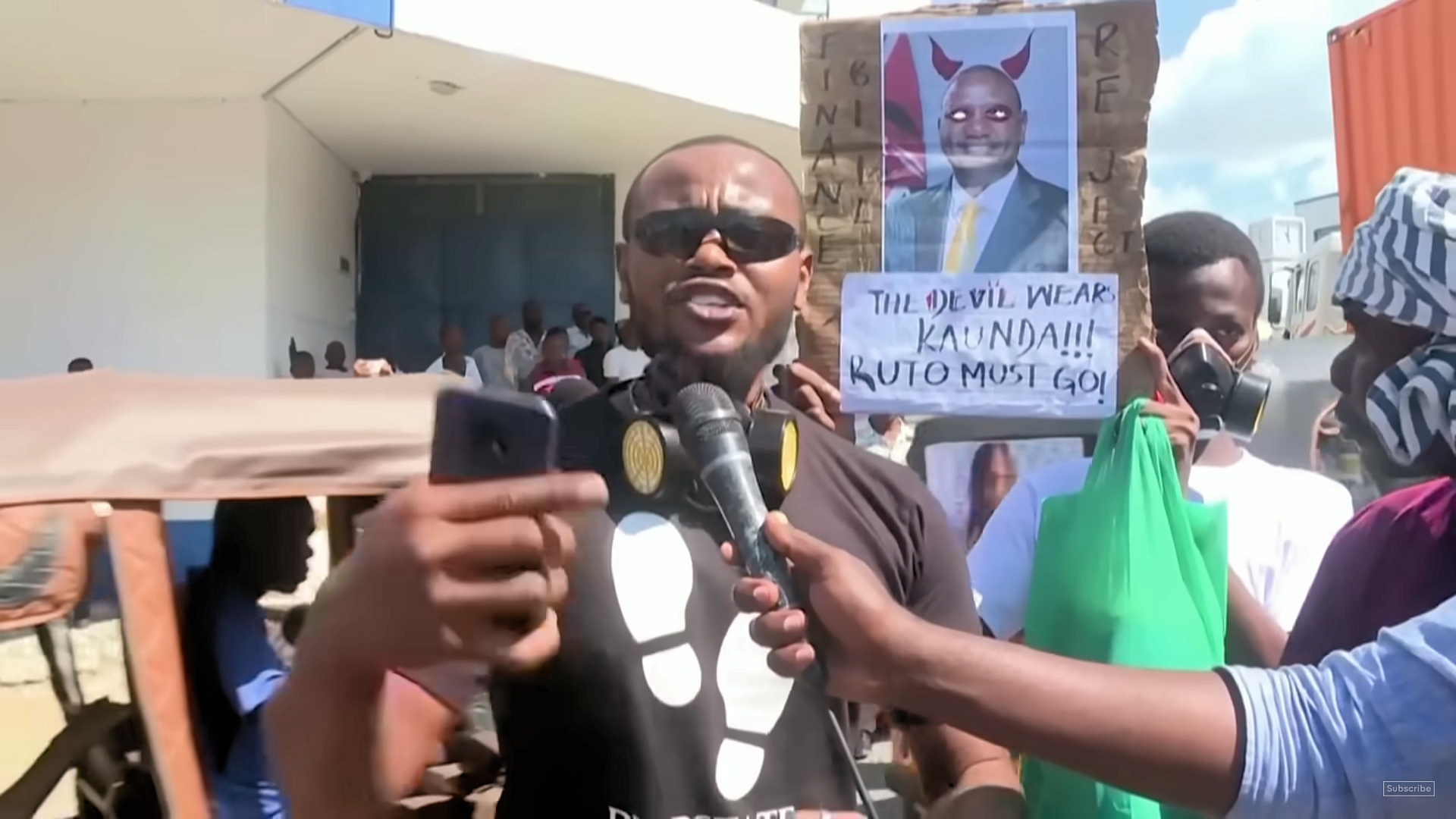
“The disbandment of the Cabinet is not an expectation but a demand from the people of Kenya,” Nairobi Senator Edwin Sifuna told The Standard. “He starts off with a serious deficit of trust from citizens; he must convince us otherwise.”
But other opposition leaders think the problem is deeper than a mere lack of sincerity.
“The only reason why Ruto has not changed his cabinet is because the power brokers around his office are blackmailing him,” said Kisii Senator Richard Onyonka, alluding to the deep corruption that permeates the Kenyan state.
Indeed, violence and greed are at the heart of Kenya’s political culture today. “At least 39 people were killed during clashes with the police in June, according to the Kenya National Commission on Human Rights,” the New York Times reported in a long article Jul. 6 article. “At least 32 people, including activists, medical workers and social media influencers, have been abducted or arbitrarily detained, according to interviews with human rights monitors and dozens of activists, including five who recounted being seized.”
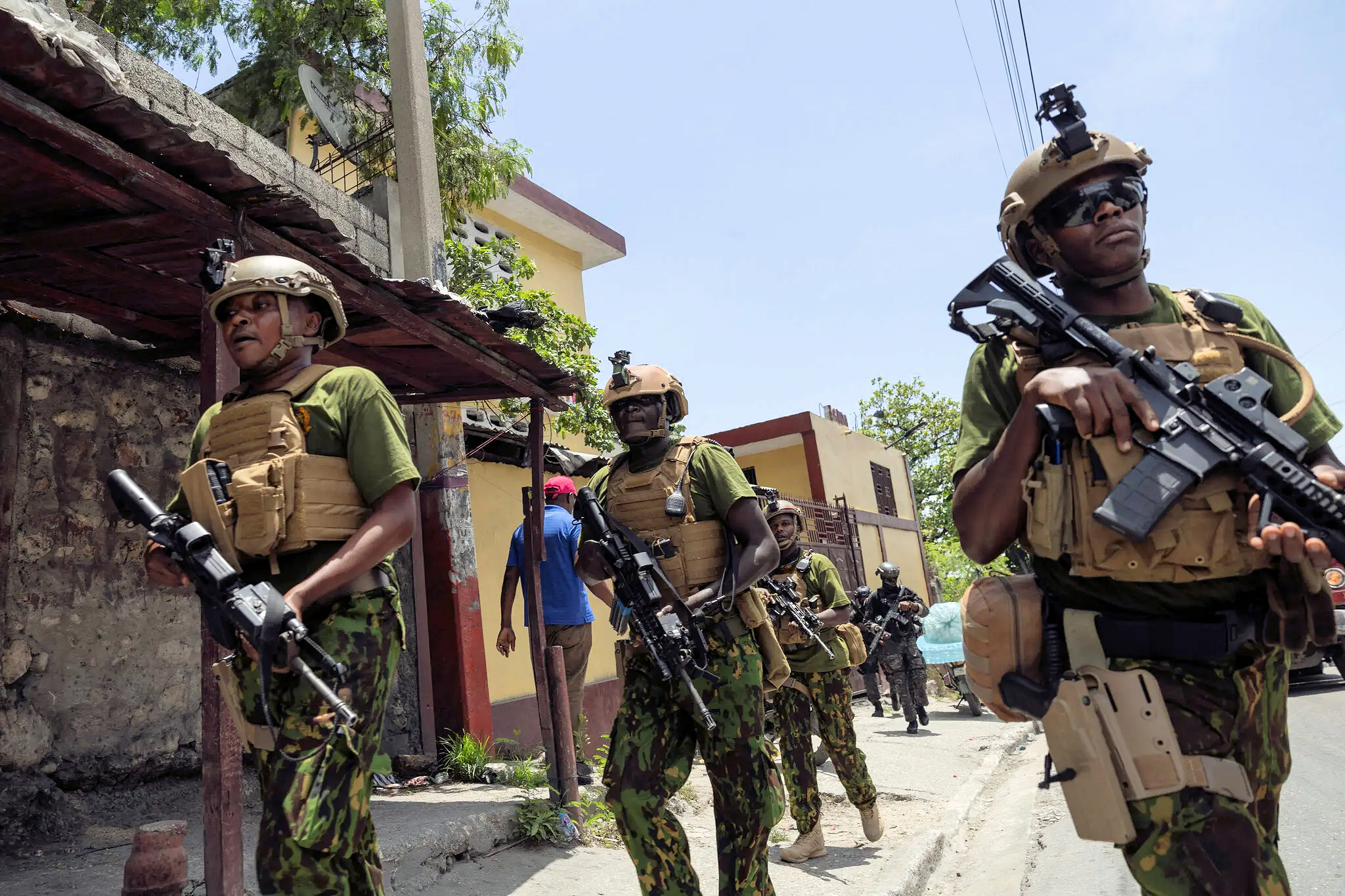
Meanwhile, money is the carrot for the Kenyan police being deployed to Haiti. In short, they are mercenaries.
In Kenya, General Services Unit (GSU) cops – who comprise much of the MSS – make between $373 to $500 monthlyafter they just received a 40% raise starting Jul. 1. (Another MSS component, Kenya’s Administration Police or AP, make even less, starting at $189 monthly). While deployed, they will receive their normal salaries plus between $1,170 and $1,559 monthly, for the rank-and-file soldiers. In contrast, Kenyan MSS Commander Godfrey Otunge makes $7,797 monthly, in addition to other “huge perks and allowances.”
This wage gap and other bait-and-switch tactics has angered the grunts, as The Standard recently reported. There is “a standoff reportedly pitting junior officers against their seniors over the vexing subject of allowances,” the news site wrote.
For example, deploying MSS cops were promised a $780 (100,000 Kenyan shillings) “departure allowance” to give to their families, but just before leaving, the allowance was slashed by 80% to a mere $156. “”This is not what they promised us,” one cop anonymously told The Standard. “What can it buy? Does it mean that we are leaving our families empty-handed?”
A Kenyan security analyst, George Musamali, complained that the Kenyan soldiers were not even given life insurance. “It is unheard of,” he told the outlet. “How do you send an officer overseas without life insurance? This is a life-and-death kind of mission. Let’s face it, not everyone will come out alive, and we have to be aware of this fact.”
It is certain that such grievances and the turmoil at home will impact the morale and effectiveness of the Kenyan troops in Haiti. But the inevitable massacres, abuse, pollution, and resistance that the MSS deployment will bring – as in all previous foreign interventions into Haiti – will likely stoke the growing protest movement back in Kenya, possibly leading to Ruto’s ouster.
If this were to happen, it would be a huge setback for Washington’s plans in Africa. Last Sep. 25, U.S. Defense Secretary Lloyd Austin was in Nairobi to ink a still shrouded security deal with Kenya, making it a key U.S. chess piece in East Africa. The Kenyan police deployment to Haiti and the drafting of Kenya into NATO were only parts of Washington’s larger plan to use Kenya as its regional cop to fight “terrorism” and stop the growing influence of Russia and China across Africa.
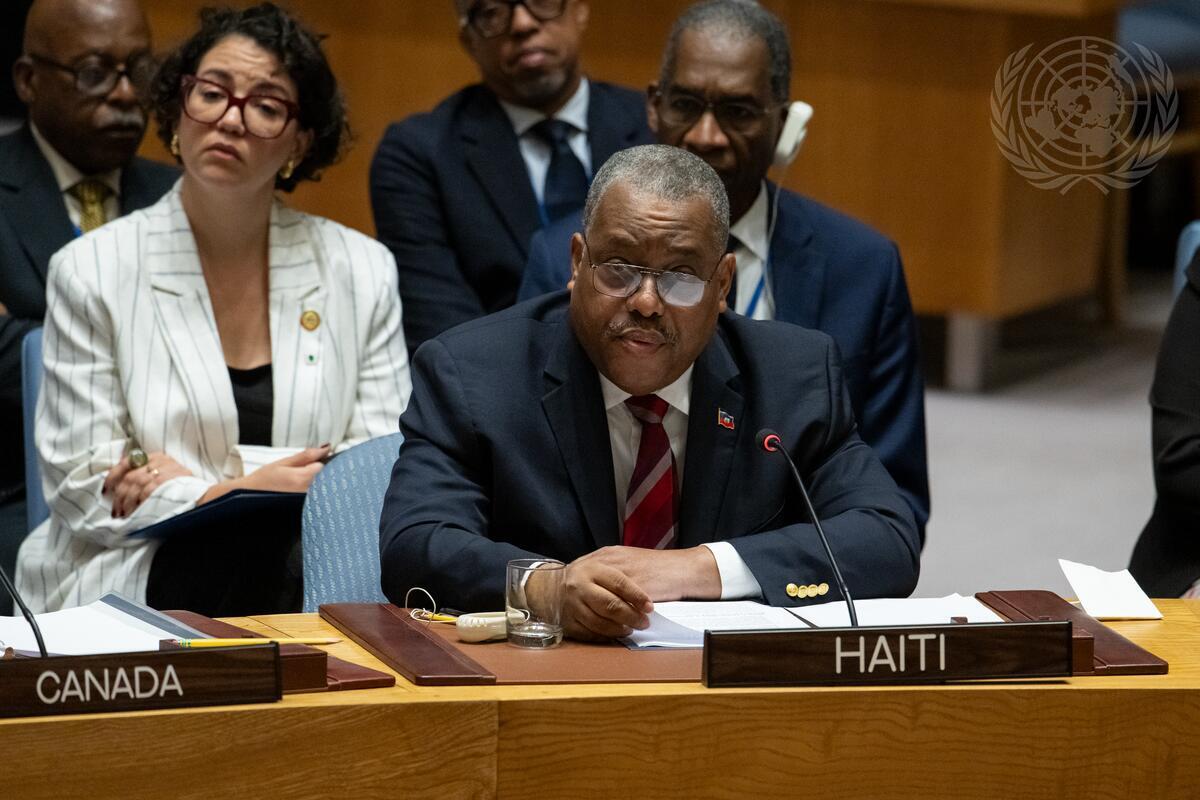
There are many other signs of trouble back in Haiti. After months of delay and missed deadlines, the first contingent of Kenyan cops finally arrived in Haiti on Jun. 25. Some reports said that it was 400 troopswhile others reported only 200. Originally, 1000 Kenyans were supposed to deploy. They would lead other cops from Antigua and Barbuda, Bangladesh, Barbados, Benin, Chad, Guyana, Grenada, Saint Lucia, Dominica, Saint Vincent and the Grenadines, Jamaica, Suriname, and the Bahamas. However, none of these small nations have made a firm troop commitment except for Benin ( 2,000 supposedly, more than Kenya) and Bahamas (150).
“The full force is set to number over 2,500,” Reuters reports“but it remains unclear when these could arrive, while funding has lagged far behind requirements.” The U.S. has pledged $300 million, Kenyan officials say the cost will be some $600 million, while a UN fund for the force has only raised $21 million.
So far, the Kenyan cops have only made a couple of photo-op patrols with their Haitian counterparts around Port-au-Prince but have not engaged in any battles with Haiti’s armed groups.
In an effort to reassure, the Kenyan MSS Chief Godfrey Otunge and new Haitian National Police (PNH) chief Normil Rameau held a Jul. 8 joint press conference, but they offered little more than platitudes.
Otunge promised that his men would accomplish their mission “to support the efforts of the National Police, to reestablish security in Haiti, and build security conditions conducive to holding free and fair elections.”
He said the Kenyans and PNH would operate “joint security operations,” guard “critical infrastructure sites and transit locations” such as “airports, ports, schools, hospitals, and key intersections,” and that the MSS “will operate and comply with international law… and local laws while executing its mandate,” even though its very deployment violates Article 263-1 of Haiti’s 1987 Constitutiontramples a Kenyan Court stay, and disregards the UN Charter’s prohibition against foreign troops interfering in any nation’s internal affairs.
Rameau was somewhat on the defensive, saying that the “15 days [since his appointment] is not 15 months nor three years,” an apparent reference to his deposed predecessor Frantz Elbé lackluster performance.
He said that “we’re coming with new strategies to replace the old ones, which are obsolete, to track the criminals everywhere they are,” and that “we’re in a period of evaluation and planning” but “for strategic reasons, we can’t go into details.”
“We don’t care if you’re white or black. If you’re not Haitian, and you’re on our soil, we consider you to be an invader.”
Rameau claimed to “know how [the armed groups] function” and explained that some armed group takeovers of police stations were because “police have not been present in 7 of Haiti’s 10 departments” but he was working to “allow all the police to return to their posts.”
Rameau wants “the population to accompany the police in reinforcing this marriage which already has the nickname of MPP, or marriage of the police with the population… So we will have the PNH, MSS, and MPP,” he concluded.
Meanwhile, on Jun. 27, Jimmy “Barbecue” Cherizier, a leader and principal spokesman of the Live Together (Live Together) coalition of armed groups which prevented the return of former PM Ariel Henry on Feb. 29 and which the MSS is tasked with crushing, released a viral video in which he explains his resistance to the Kenyan deployment.
“As people who love this country, we’ve arrived in a situation where we’re obliged to put our foot down to liberate this country for a second time,” he tells his troops. Sold-out politicians “have become the tool of the imperialists and have brought foreign troops into the country to continue stealing our resources and killing [founding father Jean-Jacques] Dessalines’ children… The same way they called Dessalines’ a gang and bandit leader, they call us gang and bandit leaders. But we are the ones here to liberate this country. Today the entire world is watching us, and we have the responsibility to write history. Never forget that!
“The battle is not a battle for ourselves. In a war, anyone of us can die because it is a battle. But it is better to die fighting than to die as cowards. Die as good soldiers. And just as our ancestors said, anybody who dares step into or attack the quarter where we live, we’ll destroy this neighborhood, reducing it to ashes, and we’ll continue to fight them even amidst the ashes.
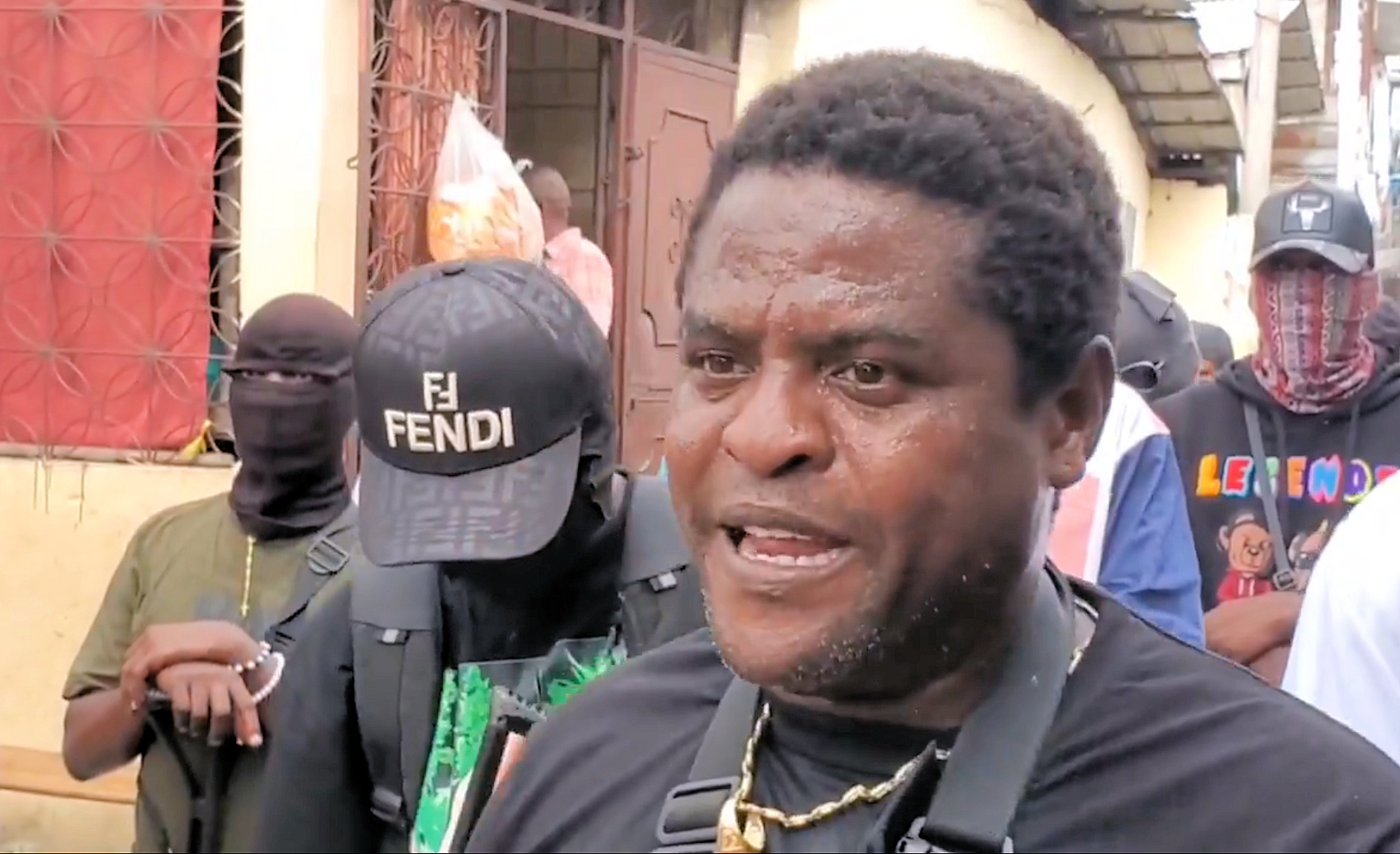
“We don’t care if you’re white or black. If you’re not Haitian, and you’re on our soil, we consider you to be an invader. An invader is never a helper. Remember they already did this to us. They came with MINUSTAH and gave us cholera, and raped young boys and young girls. Today, we are facing history. Remember that what is in your hands are arms to liberate this country…
“We’ll stand up and fight until our last drop of blood and to liberate this country.
“We will respect everybody, but we won’t be scared of anybody. We are always open to speak to everybody. But we will never lower our head before anybody. If you are someone who wants to talk to us, we’ll talk to you. But if you want to fight with us, we’ll fight you…
“And in this neighborhood where we live as Haitians, as people they have marginalized, who don’t have water to drink or houses to live in, the state makes no professional schools for us and doesn’t create the conditions for us to live like people. Today we have to take up arms to liberate our country.
“Remember that they brought the weapons into our neighborhoods, always with the goal of destabilizing the country. And that’s why every day, every minute, every second, we should always be on guard and ready for the first attack the adversary makes on us. We’ll respond to the adversary immediately.
“I repeated this already. Any one of us could die here, but we should die fighting. And I promise to every man here, and there are other guys who are in their posts, you guys have to carry the message to the other guys in their posts…
“Tell those guys this. I’m the first guy, when they attack, who will fall in the fighting, and I’m the last guy who will stop fighting…
“We will repeat for the entire world, contrary to what some would have people think, when we speak of dialogue, a lot of people say we are afraid and that we’re asking for a pardon, which is why we’re talking about dialogue.
“Today I think that people who have military training, or at least have a sense of police security, you know that even when you are fighting, you have to always leave a door open for negotiating.
“The response we give is clear. We are patriots and nationalists that love this country. Everything that is good for the country, we are ready to enter into dealings which will be good for the country. They are not little personal dealings, dealings where we get money or nice houses. What is important for us today is the majority, the collective. As Thomas Sankara said: ‘Rather than drink champagne with a small group of people, I would rather drink water with everybody’…
“Today, those of us with arms in Live Togetherwe are fighting to get water for everybody. I know that a number of groups in Live Together have done bad things, which society decries. But today, as Dessalines’ children,… we can’t let any foreign troops come and assassinate people in the nation.
“Putting our lives on the line, whether our blood flows, we’ll continue to fight until our last drop of blood to defend the country’s sovereignty and integrity.”
On Jul. 5, dressed in a natty red suit, Cherizier made another more formal formulation of the dialogue gauntlet he was throwing down before Conille.
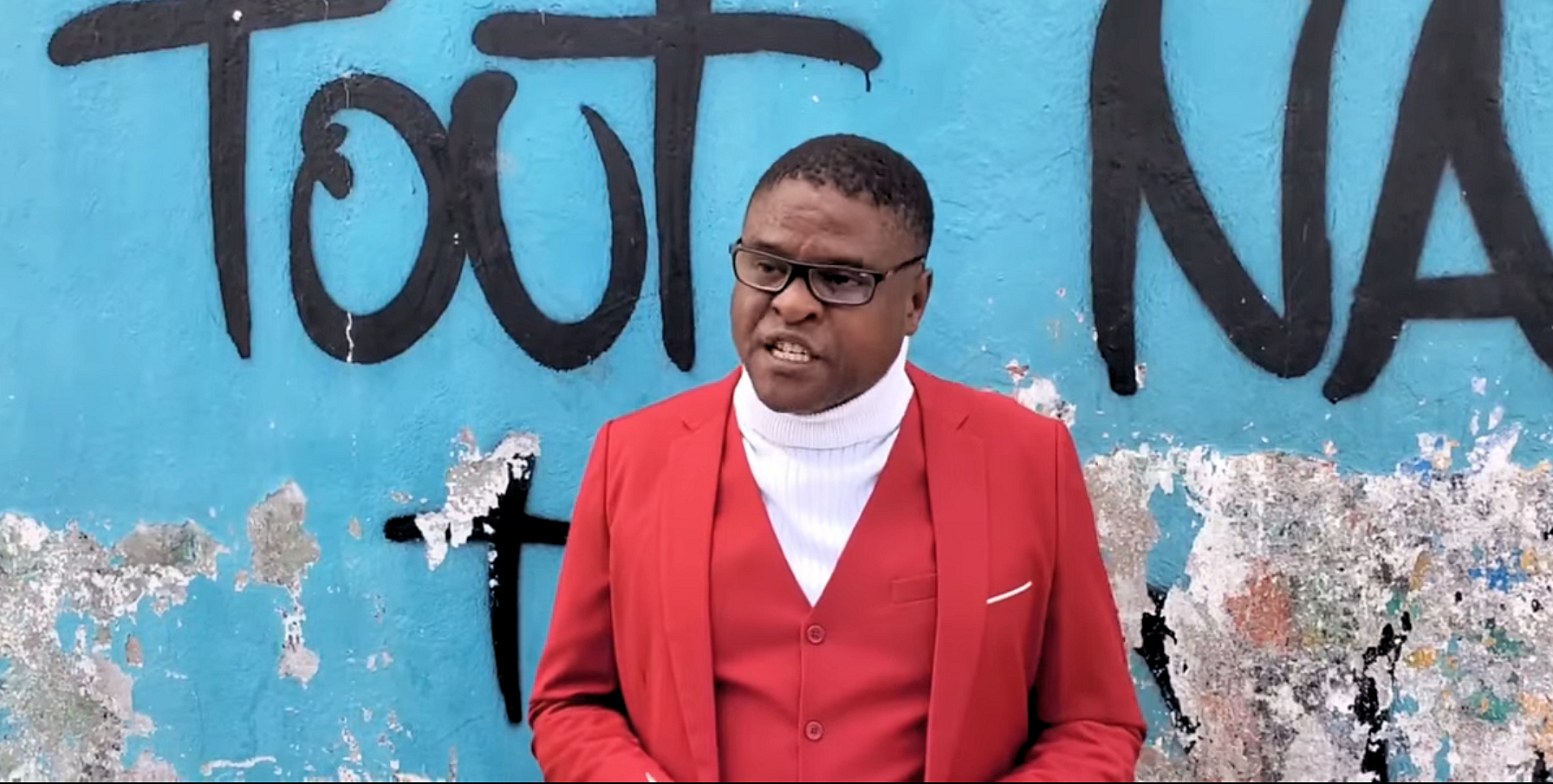
“We want dialogue, because we want peace,” he said. “Those who don’t want dialogue always rely on war… and want war… Since 1806 [when Dessalines was assassinated] until 2024, it’s been 218 years since the weakest have suffered under the war that the economic, political, social mafias, like the Church mafia, the Media mafia, the human rights mafia… have waged…. The political and economic mafias which promise democracy in the place of dictatorship have not stopped putting strategies in place to sow war among Haitians…
“The suffering we have endured has opened the eyes of us former slaves around the country, and we have decided over several years to follow the example of the Cacos and the Piquets, to revolt and take up arms around the country, above all here in the West Department [Port-au-Prince]….
“Today, let’s focus rather on the true solution which is national dialogue, where every Haitian without discrimination has the right to speak, and that’s what the mafias don’t want… We want dialogue because we want to fight against war… because we want peace…
“Why doesn’t PM Garry Conille take the opportunity to have a national dialogue to stop war and create peace across the country?… As we wait for Dr. PM Garry Conille to see and understand clearly that national dialogue is the only way the mafias aren’t going to control him and lead him down the same road as previous authorities like former Prime Minister Ariel Henry, we have decided to announce publicly that the strategy to silence the guns, put down the guns, and facilitate national dialogue, destroy the mafias’ war, and encourage peace is already written in black on white in our agenda… We want dialogue because we want to stop war and have peace.”


